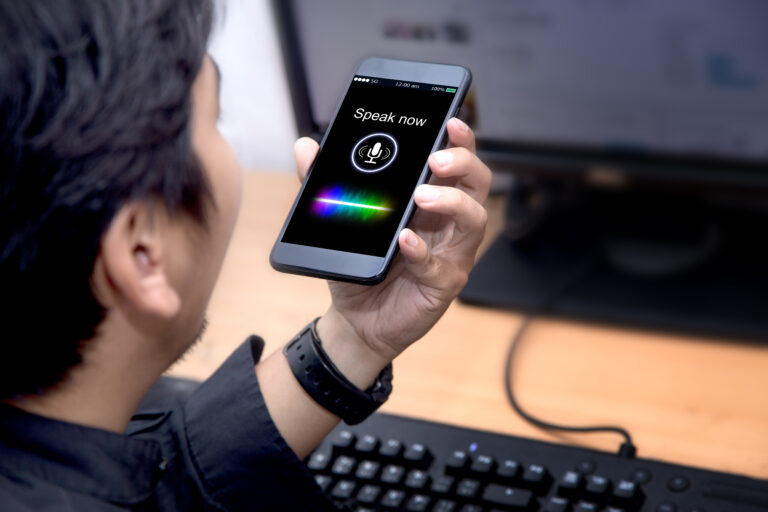
The development of AI voice cloning technology has revolutionized fields such as voice synthesis and personalized services. However, the dual-edged nature of this technology has also led to a rise in fraud activities based on AI voice cloning, with increasingly varied and rampant methods.
How AI Voice Cloning Fraud Works
-
Voice Collection: Fraudsters collect voice samples of their target from social media videos, public speeches, or intercepted phone calls. These samples include voice fragments, tone, and speaking style, among other detailed information.
-
AI Learning: Fraudsters use these voice samples to train AI algorithms, enabling the AI to mimic the target’s voice patterns, tone, and characteristics, and even generate new phrases or sentences that the target has never spoken.
-
Voice Cloning: Once trained, the AI can generate highly realistic audio that sounds exactly like the target. These cloned voices can then be used to impersonate and deceive victims.

How Fraudsters Use Cloned Voices
-
Impersonating Companies or Individuals: Fraudsters might call or leave voice messages pretending to be trusted entities, such as banks, companies, friends, or family members, to trick victims into sharing personal information or transferring money.
-
Manipulating Others: Fraudsters might impersonate the target to manipulate others into taking specific actions, such as transferring funds or disclosing sensitive information.
-
Conducting Fake Transactions: Fraudsters may impersonate the target to place orders or conduct transactions over the phone, thereby carrying out fraudulent activities.
How to Prevent AI Voice Cloning Scams
As a novel form of fraud, voice cloning poses a serious threat to individual information security. By understanding how these scams operate and implementing effective prevention strategies, we can significantly reduce the risk of falling victim to such scams. The public should enhance their security awareness, remain vigilant, and actively learn prevention techniques to build a safer, healthier online environment. The Dingxiang Defense Cloud Business Security Intelligence Center suggests that individuals can defend themselves against AI voice cloning fraud in the following ways:
-
Recognize Warning Signs: When receiving a suspicious video or phone call, maintain a skeptical attitude. Make an excuse about poor signal to hang up and immediately confirm the call by other means to avoid responding directly to potential scam content.
-
Be Wary of Urgent Requests: Fraudsters often create a sense of urgency, pressuring victims to act quickly and inducing panic, forcing them to make hasty decisions without thinking. If the caller makes unexpected requests, especially for personal information or financial assistance, remain skeptical. Be cautious of high-pressure tactics and avoid disclosing sensitive information or making immediate payments. Legitimate organizations typically do not demand urgent actions over the phone.
-
Protect Personal Information: Never disclose sensitive information over the phone, such as bank account details, ID numbers, or passwords, especially in unsolicited or suspicious calls.
-
Set Up a "Safe Word": Establish a "safe word" or "challenge question" known only to close friends, family, and colleagues, to verify the caller’s identity when receiving suspicious calls or messages. If the caller cannot provide the correct "safe word" or evades the question, hang up immediately and confirm through a known, secure contact method.
-
Reduce Sharing of Sensitive Information: Avoid sharing personal photos, voice recordings, and videos on social media to reduce the risk of identity forgery. Be cautious about publicly revealing personal, family, and work-related information. If you encounter "deepfake" content, report it to social media administrators and law enforcement immediately, take steps to remove it, and trace its source.
-
Enhance Cybersecurity Awareness: Consider using reliable software to protect your devices from malicious activities. Stay informed about the latest voice fraud and cybersecurity threats. Regularly check credible sources for updates on common scam calls and emerging technologies to boost your security awareness.
-
Report to Authorities Promptly: If you realize you’ve become a victim of fraud, preserve all related evidence immediately and report it to the police by dialing 110, so they can intervene in a timely manner.
Additionally, platforms should analyze user behavior patterns and identity information to establish security warning mechanisms, monitoring and restricting suspicious activities such as abnormal logins and high-frequency message sending. By analyzing user behavior, such as mouse movement patterns and typing styles, platforms can identify anomalies and flag activities that deviate from normal usage as suspicious. Extra identity and device verification, along with using large models to quickly sift through massive data and detect subtle inconsistencies usually missed by humans, can help identify fraudulent actions by attackers.


